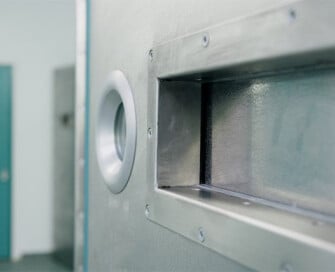Latest report highlights impact of Norfolk's custody visiting volunteers
Nearly 550 people detained by police in Norfolk’s custody facilities received a welfare check from community volunteers last year - according to a report published by the county’s Police and Crime Commissioner (PCC).
Over the course of 193 visits to the Police Investigation Centres in Wymondham, King’s Lynn, Great Yarmouth and Aylsham, Independent Custody Visitors carried out checks to ensure the proper treatment and welfare of those detained there.
Independent Custody Visitors (ICVs) are members of the local community who volunteer to visit police custody facilities, unannounced and in pairs, at any time of the day or night.
ICVs ensure that detainees understand their rights and entitlements in law, why they are in custody, that they have access to free legal advice, and that they can contact someone to inform them of their whereabouts. ICVs can inspect cells and the facilities within custody for health and safety purposes. They can, where appropriate, also inspect custody records, which are a record of everything that happens to a detainee whilst in custody.
They report their findings to Norfolk’s PCC Lorne Green, who has a statutory responsibility to run a custody visiting scheme, so that any issues or concerns can be addressed.
The latest annual report of Norfolk’s custody visiting scheme shows that, during 2019/20, the 22 scheme volunteers visited 546 people detained by Norfolk Police across the four Police Investigation Centres. While custody visitors prioritise welfare checks on detainees classed as ‘vulnerable’ such as juveniles or non-English speakers, during the 12 months covered by the report volunteers visited 90% of all detainees available to receive them at the time of their visit.
PCC Lorne Green said: “Our custody visitors are the eyes and the ears of the public – visiting detainees, reporting on what they see and offering public reassurance that the police are treating people with fairness and respect.
“ICVs play a crucial role in safeguarding detainees - and the police too. We’re often quick to highlight when things go wrong, but don’t always hear about the things that are done well. The annual report of last year’s custody visiting activity shows that, almost without fail, our volunteers deemed the standards of care provided and the respect and dignity offered to the detainees to be exemplary.”
As a result of the conversations that ICVs had with detainees, requests – such as for additional drinks, blankets or to speak with solicitors or family member - were raised and passed on to custody staff. ICVs have worked with custody staff to monitor detainees’ access to showers in cases where individuals have been held in custody for several days. The provision of sanitary products also been a focus for ICVs following a change in the law in August 2019 to ensure that all police forces make special provisions for female detainees. It is now the law that they are all able to speak privately to a female officer/member of staff and that they have proper access to sanitary supplies. ICVs will not only check stock levels but enquire with female detainees as to whether they are aware of their entitlements.
“For many people, arriving in a custody suite can be a daunting and frightening experience without being aware of their rights or entitlements”, the PCC said. “While the work of our custody visitors is largely unseen despite hours of effort, the role they play is a crucial one. The work these wonderful, selfless volunteers do, and their dedication to the scheme, is the finest example of service above self, and I am full of admiration and gratitude for them.”
“Our ICVs have worked closely with Norfolk Police over the course of 2020 to put in place additional safety measures, in line with Covid restrictions, to ensure that, where and when possible, custody visits have still been taking place. The safety of our volunteers, whose work I so highly value, and the custody staff who have worked tirelessly during the pandemic, is paramount.
“I am very grateful to both for their continued commitment to custody visiting, and extremely pleased visiting will be taking place in the lead up to, and during, the festive period - affording extra protection for the most vulnerable in society who, in finding themselves in custody at this time of year, can find it an even more challenging experience.”
